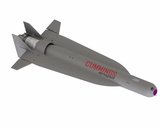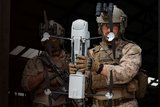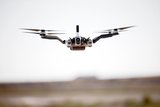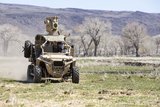Northrop Grumman counter-UAS architecture impresses in live-fire trials
FAAD C2 integrates sensors and effectors to defeat a range of weapons. (Photo: Northrop Grumman)
Northrop Grumman’s counter-UAS (C-UAS) command and control (C2) system has completed its most complex test to date, being used to intercept weapons during live-fire trials.
In trials at the Yuma Proving Ground in Arizona, the Forward Area Air Defense Command and Control (FAAD C2) acted as the C2 system for C-UAS assets to detect and intercept a range of targets.
During the trial, FAAD C2 was integrated with eight sensors and six effectors to simultaneously defend against coordinated rocket, artillery, mortar and UAS attacks.
Related Articles
FAAD C2 demonstrates counter-drone interface
The system provided a single integrated air picture to provide situational awareness and identify, evaluate, and defeat targets.
FAAD C2 is deployed in several operational theatres conducting short-range air defence, C-UAS, counter-rocket, artillery and mortar missions.
Completing the FAAD C2 activities allows Northrop Grumman to release a new software baseline, including new C-UAS capabilities.
More from Uncrewed Vehicles
-
![Cummings Aerospace showcases Hellhound loitering munition designed for US Army’s LASSO programme (video)]()
Cummings Aerospace showcases Hellhound loitering munition designed for US Army’s LASSO programme (video)
Cummings Aerospace presented its turbojet-powered Hellhound loitering munition at SOF Week 2025, offering a man-portable solution aligned with the US Army’s LASSO requirements.
-
![SOF Week 2025: PDW unveils attritable FPV drone for SOF operations at scale]()
SOF Week 2025: PDW unveils attritable FPV drone for SOF operations at scale
PDW has revealed its Attritable Multirotor First Person View drone at SOF Week 2025, offering special operations forces a low-cost, rapidly deployable platform for strike and ISR missions, inspired by battlefield lessons from Ukraine.
-
![SOF Week 2025: Teledyne FLIR white paper provides guidance on reusable loitering munitions]()
SOF Week 2025: Teledyne FLIR white paper provides guidance on reusable loitering munitions
Teledyne FLIR is highlighting the emerging requirements for 'recoverable and re-usable' loitering munitions across the contemporary operating environment during this week’s SOF Week conference in Tampa, Florida.
-
![SOF Week 2025: Kraken Technology group debuts K3 Scout USV in North America]()
SOF Week 2025: Kraken Technology group debuts K3 Scout USV in North America
High-performance maritime industry player Kraken Technology Group, based in the UK, has used the SOF Week conference in Tampa, Florida this week to debut its K3 Scout uncrewed surface vessel (USV) to the North American market.
-
![Palladyne AI and Red Cat to demonstrate capabilities for autonomous drone swarms to the US military]()
Palladyne AI and Red Cat to demonstrate capabilities for autonomous drone swarms to the US military
Red Cat and Palladyne AI recently conducted a cross-platform collaborative flight involving three diverse heterogeneous drones.
-
Jammer resistant drone designs spark search for countermeasures
The Russia-Ukraine conflict has driven another stage of evolution for drones and the counter measures to defend against them.

























